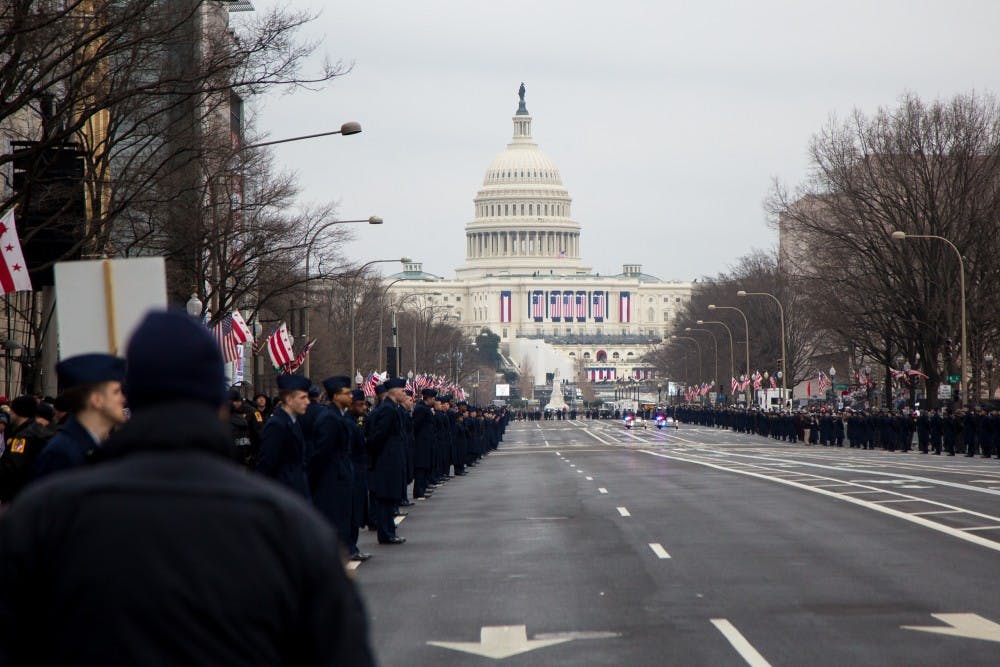Two new student learning outcomes were approved by the Board of Governors Committee on Educational Planning, Policies and Programs on Wednesday.
They require that students learn the principles of American democracy — similar to the requirements of the North Carolina Reclaiming College Education on America’s Constitutional Heritage Act, or the REACH Act —which was proposed in the N.C. General Assembly in 2023 and passed by the House of Representatives. The bill has since stalled in the Senate.
The REACH Act would require a three-credit-hour class in American history or American government to graduate with a baccalaureate degree for all UNC System students, including a final comprising 20 percent of a student’s grade. Mandatory reading for the course would include the following documents in their entirety: the United States Constitution, the Declaration of Independence, the Emancipation Proclamation, Dr. Martin Luther King Jr.’s Letter from Birmingham Jail, the Gettysburg Address, the North Carolina State Constitution and at least five essays from the Federalist Papers.
The act would also grant authority to the BOG to remove the chancellor of any institution that does not comply with the requirements of the act for more than one academic year.
The SLOs, although still requiring largely the same readings outlined in the REACH Act, would allow institutions to determine whether to create a new course entirely or to incorporate the outcomes into existing classes. The rationale behind the SLOs is a concern about the lack of civic knowledge among both young people and adults.
The UNC System Office asked the administration of some schools, including UNC-Chapel Hill, to select a representative for a working group that would create the SLOs. The group consisted of five professors from UNC, North Carolina Central University, UNC Asheville, Elizabeth City State University and UNC Greensboro. Molly Worthen, history professor and inaugural faculty member of the School of Civic Life and Leadership, was the representative from UNC.
Wade Maki, a philosophy professor at UNC Greensboro and member of the working group, said the passing of the SLOs should negate the need for the REACH Act to proceed any further since the core educational objectives of the act will have been met with the SLOs. He also said the creation of the SLOs is an attempt to accomplish the objectives of the REACH Act while preventing the North Carolina legislature from directly intervening in curricula.
Because there was so much political interest in the topic, the group could not have been created publicly, Maki said. He said the System Office's strategic decision to create the group privately was so faculty would be at the forefront of the development.
Some faculty have expressed concerns regarding their lack of involvement in creating curricula in the past, notably last year when nearly 700 UNC faculty signed an op-ed published in The Daily Tar Heel that claimed the N.C. General Assembly, the BOG and the UNC Board of Trustees had been violating principles of academic freedom.




